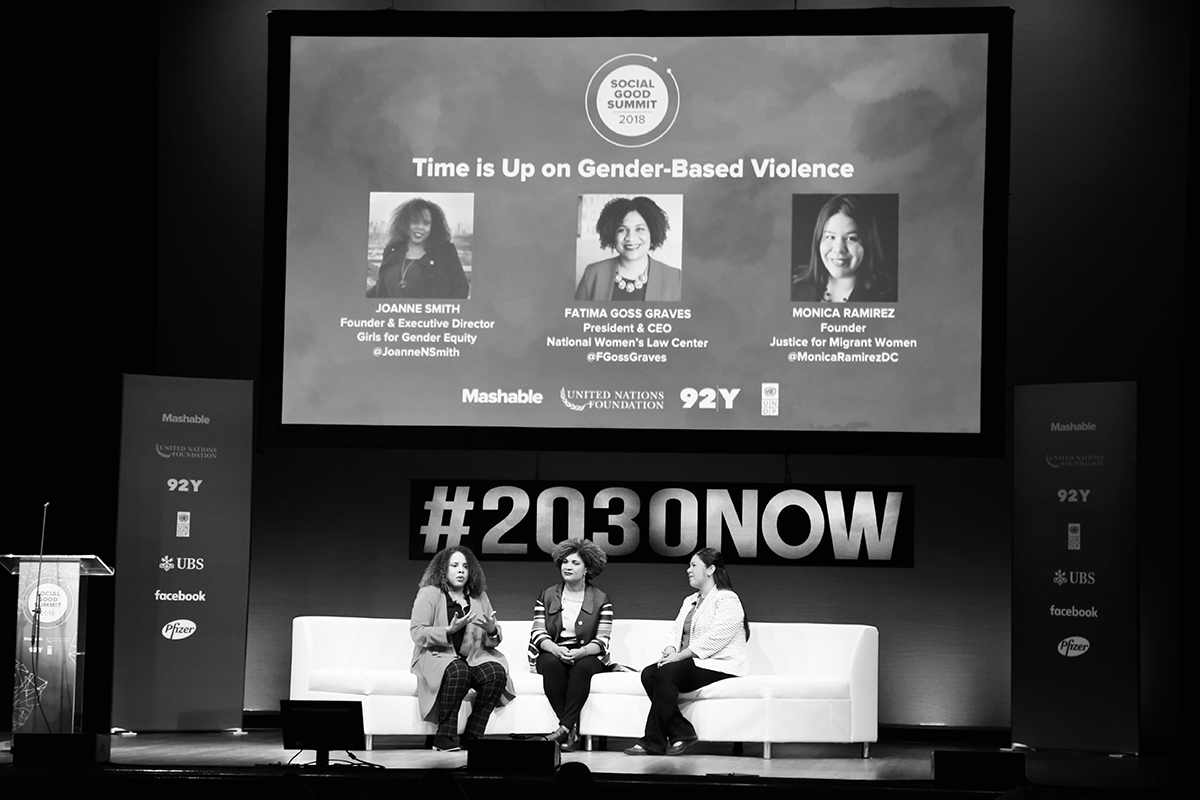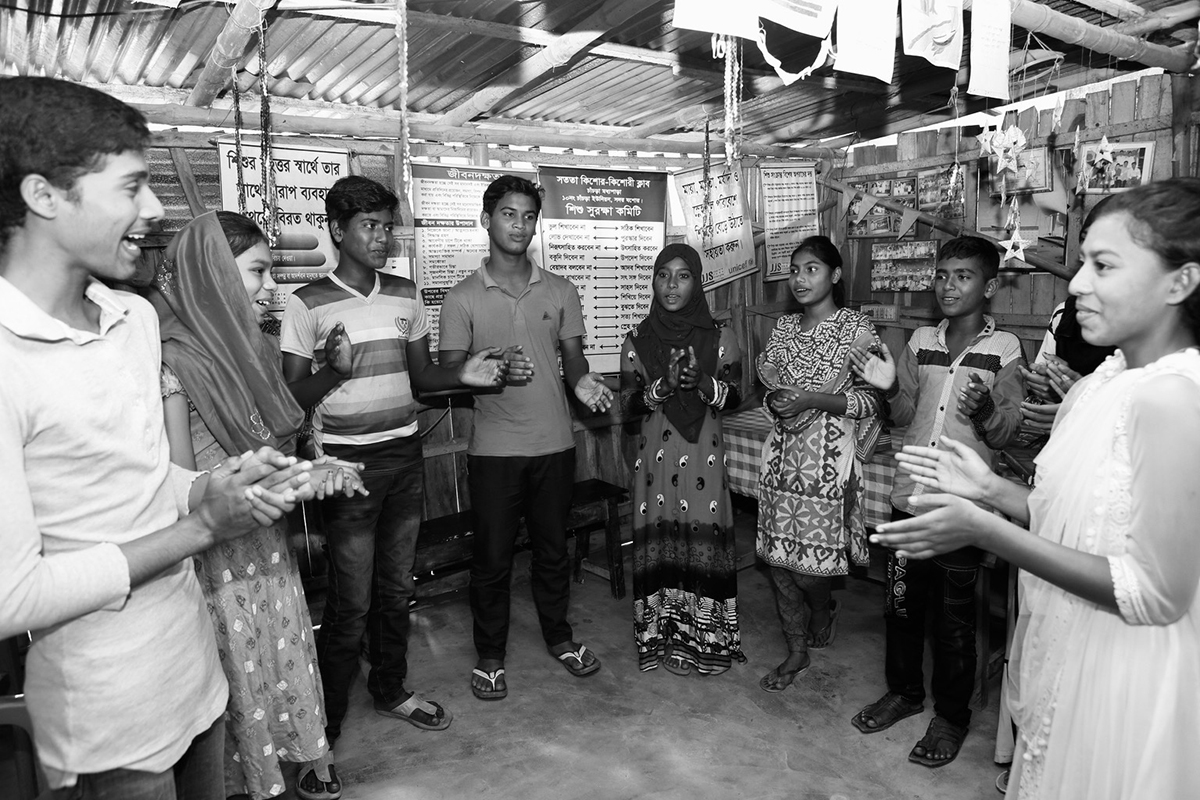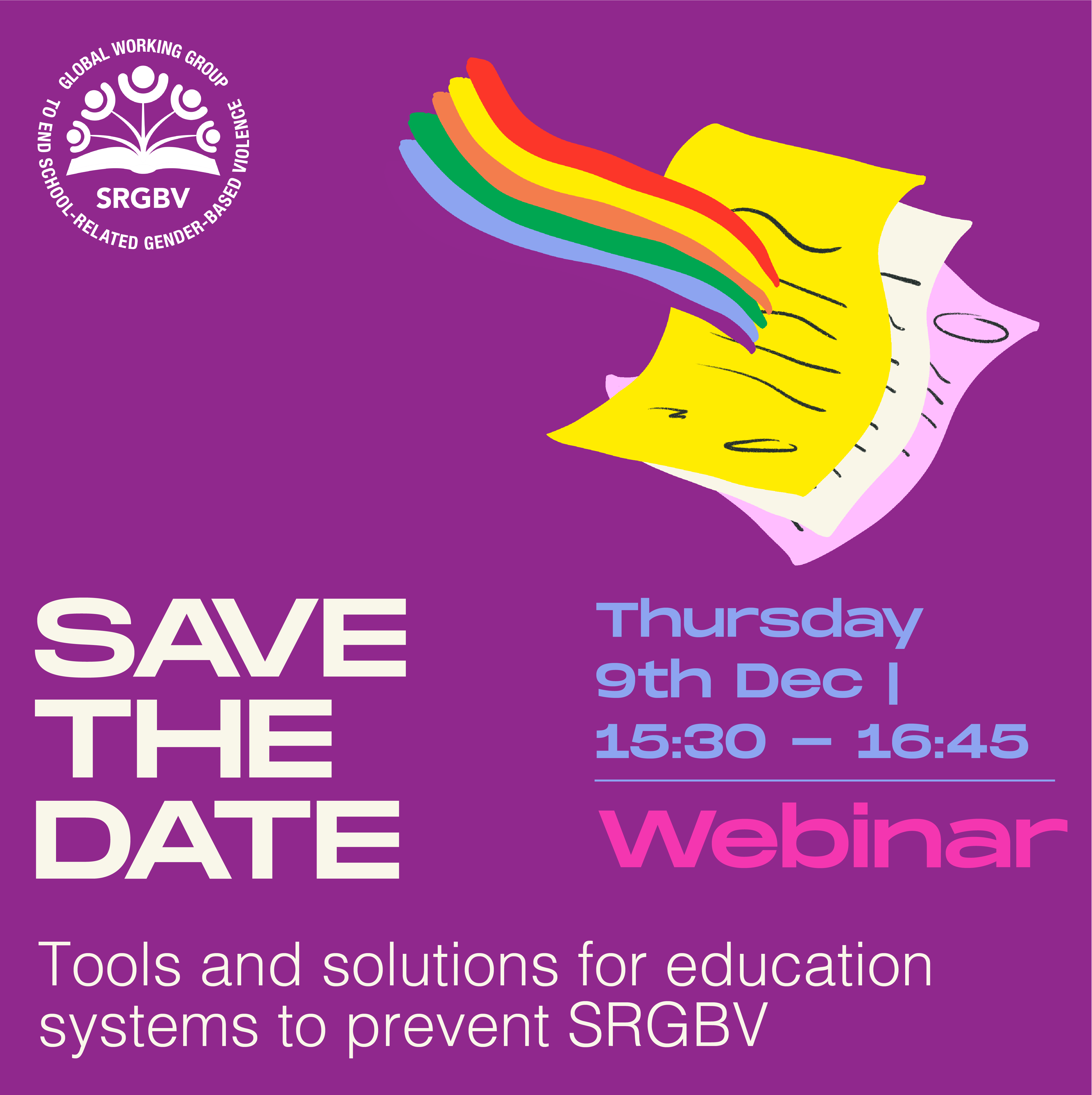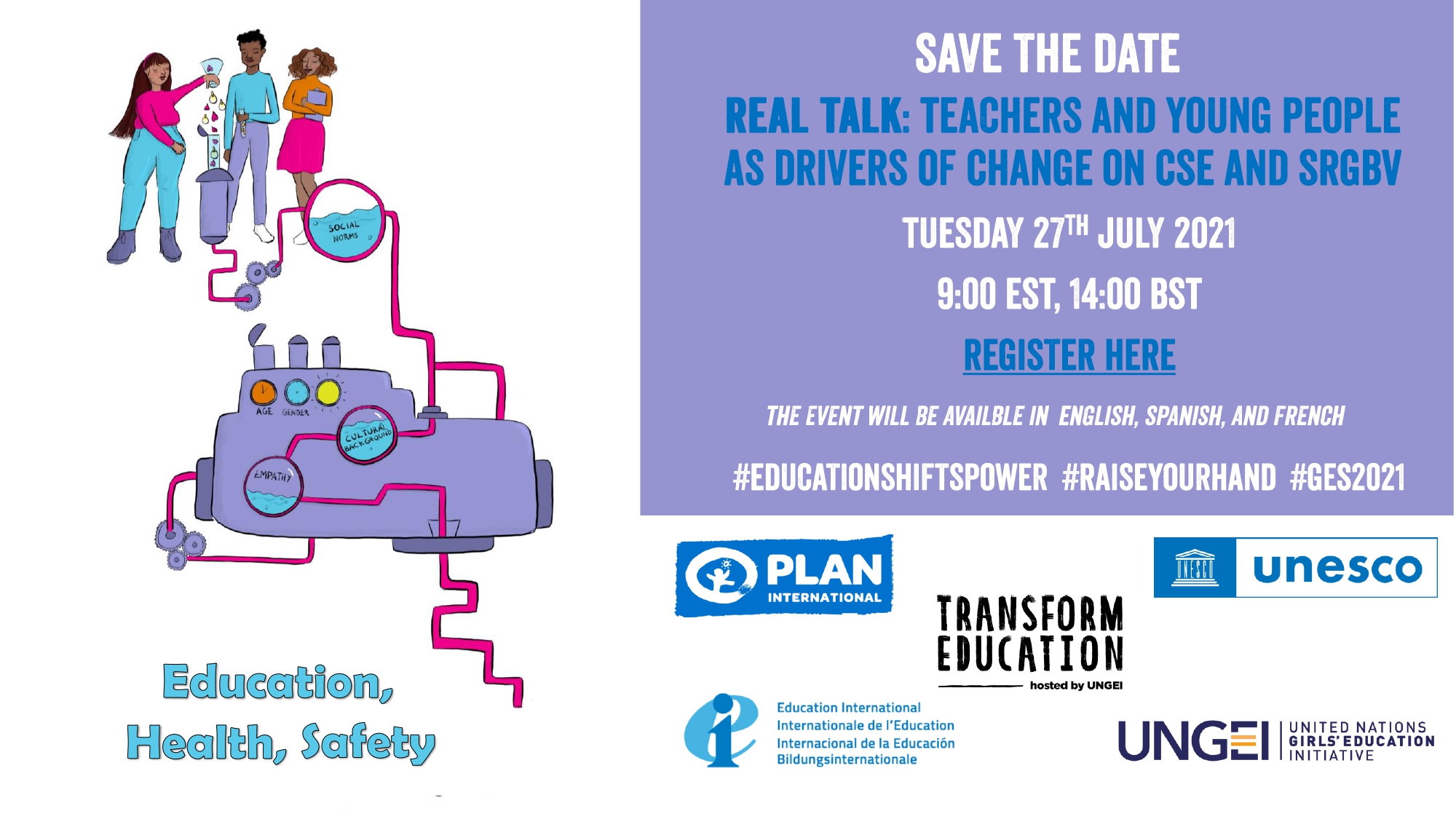In conversation with leading lights of the #MeToo movement at the recent Social Good Summit in New York, Monica Ramirez, founder of Justice for Migrant Women, asked Joanne Smith, Executive Director of Girls for Gender Equity, a prescient question: how do we take forward the breakthrough moment that was #MeToo and leverage it for change? Joanne’s response: “We have to get to the root of the [gender-based violence] problem and address it holistically…” Too often, gender-based violence (GBV) starts in childhood, in the home, which creates the conditions for GBV to take place in schools, colleges and throughout the life cycle. It’s a continuum, the root cause of which is harmful gender norms and unequal power dynamics between boys and girls, men and women. If we can change gender norms, we can end GBV.

Joanne’s words speak to the heart of the 2018 #16Days of Activism Against (School-Related) Gender-Based Violence (SRGBV) Campaign that UNGEI is today launching in partnership with the Global Working Group to End SRGBV. Our theme: engaging men and boys to challenge gender norms and take action against SRGBV.
Fighting GBV through education
It is widely established that, armed with education, girls are more likely to resist GBV and discrimination, become powerful champions of their own rights, and help change their communities from within. Yet, the harsh reality is that, due to SRGBV, for millions of boys and girls across the world school is anything but an empowering place.
Defined as “any act or threat of sexual, physical or psychological violence happening in and around schools, perpetrated as a result of gender norms and stereotypes, and enforced by unequal power dynamics,” SRGBV is a worldwide issue, and the limited data we have paints a shocking picture:
- In a Ministry of Education study in Senegal 62% of girls reported being insulted, 44% subjected to acts of humiliation, 37% to sexual harassment and 13% to rape. 35% of teachers and 18% of boys confidentially identified themselves as perpetrators of sexual harassment.
- According to research undertaken by UNICEF in the Democratic Republic of Congo, 46% of schoolgirls reported having experienced sexual harassment, abuse and violence from teachers and other school personnel.
- A report by Plan International found that over 60% of LGBTQI children in Chile, Mexico and Peru were reported to been bullied compared to 7% of heterosexual students.
The consequences of SRGBV are devastating, and, if not addressed, render the Education 2030 vision of quality and inclusive education for all children everywhere (SDG4) an unattainable illusion.
The gender dimension: engaging men and boys
Both boys and girls are affected by GBV in and around schools, but research tells us that girls are more vulnerable to sexual harassment and violence than boys, and girls with disabilities are the worst affected. From the limited data available we know that men and boys are the the major perpetrators of SRGBV, which, as indicated, is borne of deep seated gender inequalities. It follows, therefore, that eduction is also a powerful vehicle through which we can work with men and boys to transform harmful gender norms in order to root out SRGBV and, ultimately, advance gender equality in and through education.
Thus, to address the root causes of SRGBV, schools and education systems need to demonstrate and promote positive gender relations and norms. For this to happen, men and boys (including students, teachers, fathers, community and religious leaders, policymakers and other education stakeholders) must understand and challenge male privilege, gender biases, and GBV. Boys must learn to define their self worth independent from their ability to dominate others. Moreover, to create the conditions in which women and girls can empower themselves through education, men and boys must see themselves as allies in the process. They need to understand that just as traditional models of masculinity undermine the rights of women, girls, and gender non-conforming students to safe learning environments, such models of masculinity also limit opportunities for men. Solidarity between boys and girls, men and women, in the movement against SRGBV is essential to achieving our shared objectives.

We need to link arms. We need to commit to change. And we need to commit to building power together because we all deserve to live and work with safety, security and dignity.
16 Days of Activism: the roadmap
In light of this, during our #16Days of Activism (25 Nov-10 Dec) we aim to encourage more focus on the importance of engaging men and boys in efforts to tackle SRGBV. Working with partners, over the course of the campaign we will address two key questions:
- Why must men and boys be allies in the movement to end SRGBV and how can they take action against it?
- How can educationists harness the power of education to engage men and boys in challenging gender norms and standing up to SRGBV?
In partnership with young male gender champions from across the world, each day we will share one reason as to why men and boys must heed the call to action to stand up to SRGBV. In parallel to this, we will publish a series of blogs, supported by programme case studies, that outline how educators can work with men and boys to rewrite the script around gender norms, shift gender attitudes, and, ultimately, seed gender equality. Blog posts from partners will provide more in-depth information on approaches to tackling SRGBV through sports, mentorship, and a variety of activities that promote gender equity.
Are you with us?
The evidence is clear: strengthening opportunities for men and boys to participate in and support gender equality efforts, especially through standing up to SRGBV, has a positive impact not only on the potential of women and girls but also on the lives of men and boys. Follow our #16Days Campaign through the hashtag #EndSRGBV to find out how we can work together to bring real and lasting change.



 English
English العربية
العربية Български
Български Hrvatski
Hrvatski Čeština
Čeština Dansk
Dansk Nederlands
Nederlands Suomi
Suomi Français
Français Deutsch
Deutsch Ελληνικά
Ελληνικά हिन्दी
हिन्दी Italiano
Italiano Română
Română Русский
Русский Español
Español Maltese
Maltese Zulu
Zulu አማርኛ
አማርኛ